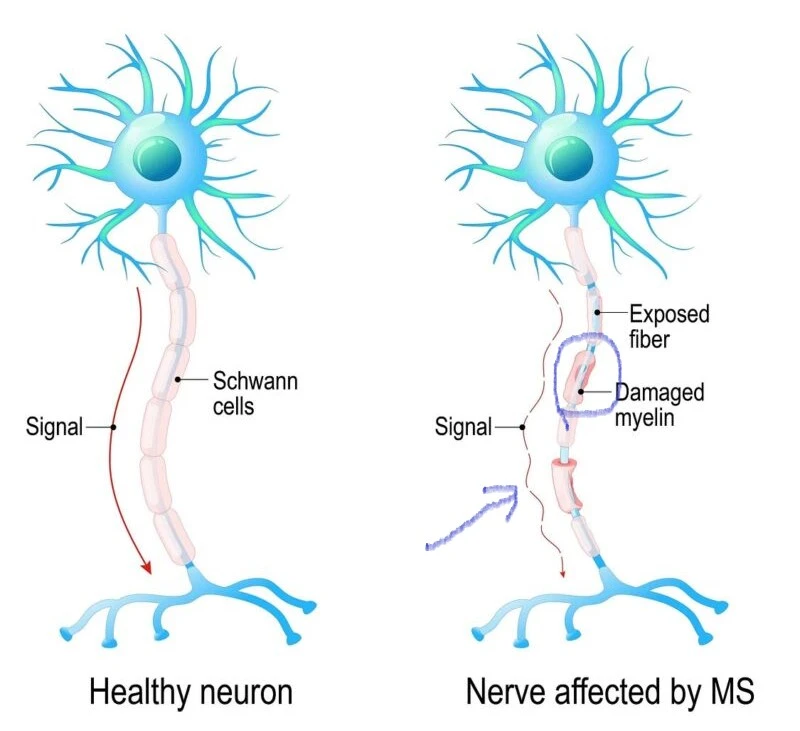Introduction
- Multiple sclerosis (MS) makes harm nerve strands in the focal sensory system.
- Over the long haul, it can prompt vision issues, muscle shortcoming, loss of equilibrium or deadness.
- A few medication treatments can restrict nerve harm and slow the illness’ movement.
- It is auto immune disease, in which your immune system attacks healthy cells.
- The immune system attack on cell in the myelin and protective sheath of brain and spinal cord.
- The world MS day takes place 30th May every year.
Types of MS
Almost 1 million people lives in the USA suffers from multiple sclerosis. There are four types of multiple sclerosis
Clinical isolated syndrome (CIS )
- When someone has first detected MS symptoms, it is categorized as clinical isolated syndrome
Relapsing remitting MS (RRMS)
- It is most common form in which RRMS have flare ups which is called as relapse or exacerbation with worsening symptoms
Primary progressive MS(PPMS)
- People have primary progressive MS have slowly and gradually worsen symptoms without any relapse or remission.
Secondary progressive MS(SPMS)
- In the SPMS, your symptoms continuously worsen day by day.
- You may still experience some flare when symptoms increase.
Causes of Multiple Sclerosis
The following factors may be responsible for MS, as per experts what causes MS is still not possible to know
- Due to bacteria or virus
- Geographic location : Certain part of world has higher rate of this disease as compared to other part of world due to less amount of sun light received on that region.
- Immune system : It depends upon immune system of person
- Gene mutations : If your family member suffers from MS, high risk of you will also get infection to this disease.
Symptoms
- Fatigue
- Loss of balance
- Muscle weakness
- Numbness in arms/legs
- Balance/ Dizziness
- Tremors
Complications
- Difficulty in walking
- Memory problems
- Sexual life problem
- Vision problems
- Hearing loss
- Numbness and tingling
Diagnosis
It is very important to identify this disease. If you suspects, you will need advice of neurologist, which includes your brain and spinal cord. You undergone test as per your neurologist, specially MRI.
- Drugs : FDA approval drugs help reduce relapses and also slow down disease’s progression.
- Medication : Your doctor may suggest you medication which may reduce inflammation.
- Mental counselling : If you are mentally strong, it helps to improve in your diagnosis.
Source : National MS Society*


